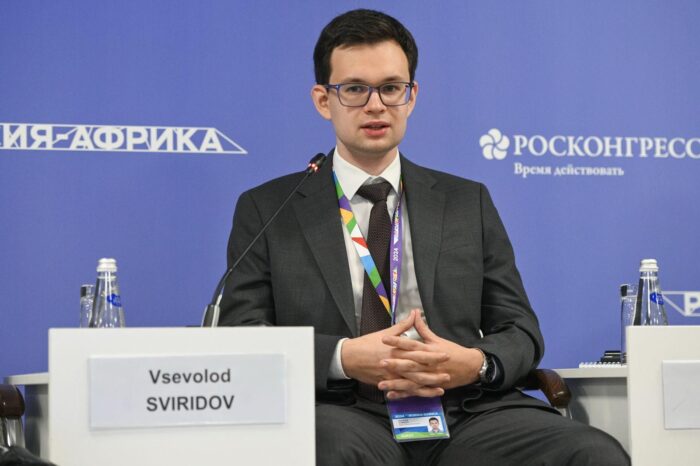Africa
Trump’s tariffs: What is the end game for Africa? -By Kestér Kenn Klomegâh
For Africa, the African Growth and Opportunity Act (AGOA) meant establishment of several mainly export-oriented industries, like textile or car manufacturing. For instance, almost 2/3 of cars manufactured in RSA are being exported to US and Europe, with only 1/3 being sold on the local market and tiny part exported to other African countries (20k out of 600k prod). They created employment opportunities for locals but never contributed to local markets and industries development, technology and knowledge sharing. Collapse of AGOA would mean additional opportunities for African industries and producers to target local and regional markets and develop industrialization strategies considering their national interests first (like Trump does).

After taking office early 2025, U.S. President Donald Trump has embarked on rewriting American foreign policy and plans to create a new geopolitical history under the “America First” doctrine. The first three months have seen efforts to implement tariffs, which finally was splashed early April world-wide, including on a grand scale across Africa. Seemingly, a blanket of tariffs is one of the standout actions of the new administration. Trump’s changing approach to the world, using geoeconomic tools, including tariffs has now sparked extensive debates and discussions. Our media chief, Kestér Kenn Klomegâh, took a quick chance and asked Vsevolod Sviridov, deputy director at the High School of Economics (HSE) University Center for African Studies, a few questions pertaining to the aspects and implications of the U.S. tariffs for Africa. Here are the interview excerpts:
How would you interpret trade war between China and the United States?
Vsevolod Sviridov: There has been a global trend towards overspending over the last two decades. We have seen commodity boom, rise of China with its global investments drive and infrastructure development projects like BRI, excessive budget spending by the OECD countries during COVID-19, etc. Now countries are trying to optimize their spending. Considering that there is a certain trend towards deglobalization, external trade and deficits are the first to fall victims to this policy. While China almost halved its lending, US are trying to cut their ODA (see South Africa’s case) and adjust their trade deficit, which is fuelling their vast debt.
What could be the reasons for Donald Trump to extend that kind of economic policy, trade tariffs, to Africa?
VS: His latest actions indicated that was possible. Trump has imposed increased tariffs on 14 African countries, including South Africa (30%), Madagascar (47%), Tunisia (28%), Côte d’Ivoire (21%), and others. The primary selection criterion was the trade deficit with the U.S., though there are exceptions, such as Libya, which was left off the list despite a US$1 billion deficit. Additionally, seven more countries, including Egypt, Morocco, and Kenya, will face a base tariff of 10%, meaning that for Washington stable relations with them are more important.
The hardest-hit country will be Lesotho (50%), where the textile industry, heavily reliant on the U.S. market, will suffer. However, South Africa will bear the greatest overall impact, as it accounts for 70% of the U.S.-Africa trade deficit. In addition to the 30% base tariff, there will be an extra 25% duty on imported cars. This will affect factories operated by VW, Toyota, BMW, and other automakers, whose exports to the U.S. total US$2-3 billion annually. Angola, which had backed the Democratic Party, is also facing penalties (32%).
If these tariffs take effect as announced, they could lead to the collapse of African Growth and Opportunity Act (AGOA). However, the U.S. has not needed AGOA as much since the 2010s when it reduced dependence on African oil and gas. AGOA is set to expire in September 2025, and Trump’s actions make its renewal highly unlikely. Trump has suggested that affected countries relocate production to the U.S., but this is difficult for African nations that mainly export raw materials. The new tariff preference system is expected to consider political and economic factors, making it less predictable and less favourable for African suppliers. On the other hand, this shift could encourage African countries to focus on regional markets and develop industries tailored to their domestic economies.
It could be excellent, from academic perspectives, to evaluate and assess the impact of AGOA in relation to Africa?
VS: For Africa, the African Growth and Opportunity Act (AGOA) meant establishment of several mainly export-oriented industries, like textile or car manufacturing. For instance, almost 2/3 of cars manufactured in RSA are being exported to US and Europe, with only 1/3 being sold on the local market and tiny part exported to other African countries (20k out of 600k prod). They created employment opportunities for locals but never contributed to local markets and industries development, technology and knowledge sharing. Collapse of AGOA would mean additional opportunities for African industries and producers to target local and regional markets and develop industrialization strategies considering their national interests first (like Trump does).
Assessing the reactions over the tariffs world-wide, and talking about the future U.S.-Africa trade, and the African Continental Free Trade Area (AfCFTA), what next for Africa?
VS: The African Continental Free Trade Area (AfCFTA) gives Africa a chance to embark on the hard and long journey of developing intraregional trade. Still this emerging market could be easily used by non-African suppliers as a tool to expand their presence, given that without protection nascent African industries are hardly able to compete in price and from time to time in quality. Especially now, when we are clearly seeing that the US are more interested in selling then buying. So any external aid and knowledge sharing assistance in this sphere should be received with caution.























